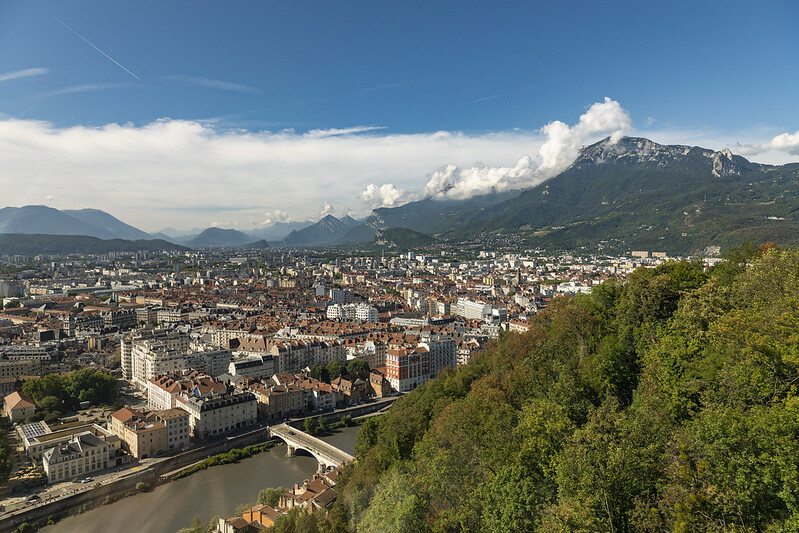At the opening ceremony of Grenoble’s Green Capital Year, impressive speeches were heard from young environmental activists, as well as speeches from representatives of cities, the French state and the EU Commission. At the opening ceremony, Virginius Sinkevičius, the EU Commissioner for Environment, Oceans and Fisheries, praised Lahti for a great year.
– Your year as the Green Capital has been impressive. As is your next goal, to become a carbon-neutral city by 2025. Lahti leaves a very impressive legacy, Commissioner Sinkevičius thanked in his speech.
Mayor Pekka Timonen rejoiced in Lahti’s successful year as the environmental capital and urged Grenoble to enjoy their year. His message to all cities in Europe and around the world is clear:
– Look at us, Lahti and Grenoble – if we can create a more sustainable future, you can do it.
From industrial cities to environmental capitals
Lahti and Grenoble are very similar in size and similar cities. Both cities are medium-sized, traditional industrial cities that have turned green and are now joining the league of environmental pioneers. In addition, both are well-known winter sports cities.
Lahti and Grenoble solve similar climate challenges and develop their existing neighbourhoods to be more environmentally friendly. The cities promote the use of wood construction and more sustainable energy solutions.
In addition, the citizens are actively involved in the development of the city: Grenoble residents, for example, have built a bike shelter made of durable materials in cooperation with the city, and like Lahti, Grenoble is being developed through participatory budgeting. The Lahti Green Capital Project, on the other hand, supported local projects, innovations and events with a total of 1.2 million euros.
Lahti continues to work for the good of the environment
Lahti is a trendsetter in climate work. The next ambitious target has already been set. In 2025, Lahti will be the first of Finland’s major cities to be carbon neutral. This is 10 years ahead of the national target and 25 years ahead of the EU target. In order to achieve this goal, Lahti will continue to work towards a sustainable future also in the network of green capitals.
At the end of 2021, the ten-year local Luontoaskel terveyteen (Natural steps to health) programme was also published with the aim of reducing endemic diseases, preventing nature loss and curbing greenhouse gas emissions. The Lahti region’s electronic transport cluster, on the other hand, supports the growth of electronic transport through cooperation, development projects and piloting.
Image: Lucas Frangella
